FEMeeting Sister Labs: Buffalo 2024
Please click the link below to join:
https://buffalo.zoom.us/j/93551560828?pwd=Vm9YYnlQQjZFZzNhMzFWa1FycFpjdz09
Passcode: 077031
“FEMeeting Sister Labs: Women in Art, Science and Technology" at the University at Buffalo includes an art exhibition, symposium, BioArt workshop and performance at Torn Space Theater.
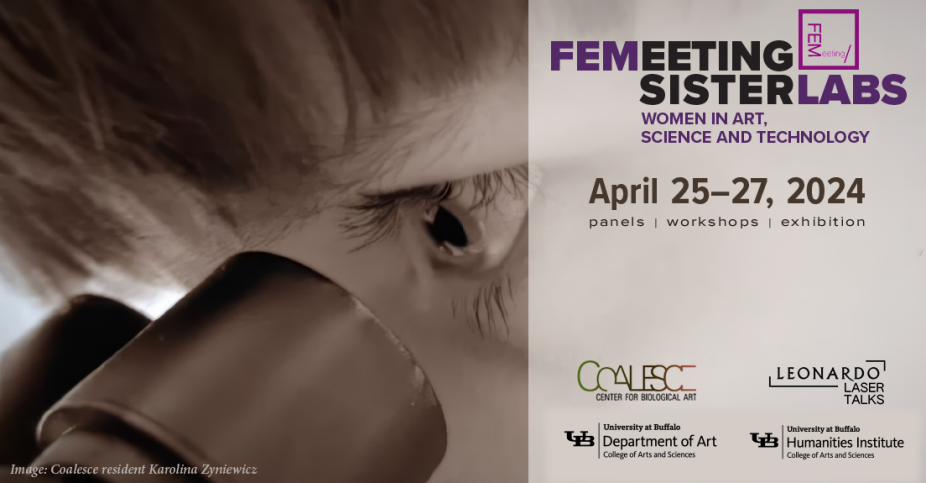
Schedule, April 25-27, 2024
- Thursday Night , 5-7PM, a reception will take place for the exhibition, "Moving Through Capillarity"
- Location: Department of Art's Project Space, in Room 155 of the Center for the Arts
- (Visitor parking is free in most lots after 3PM; check signs.)
- Curated by Marta de Menezes as part of FACTT 2024, an international festival of art and science.
Add this reception to your calendar here.
Free in-person symposium at the University at Buffalo, North Campus. Includes lunch.
This symposium is presented in partnership with Leonardo Laser Talks, which are offering a virtual (Zoom) attendance option.
Location:
UB Student Union
210 Landmark Room
Univeristy at Buffalo North Campus, Buffalo NY, 14261
Symposium Schedule:
- 9:30-10:00 Check-in and Breakfast
- 10:00 -10:30 Opening
Led by Stephanie Rothenberg, Professor and Chair, Dept. of Art, University at Buffalo
Marta de Menezes, Artist, Director, Cultivamos Cultura
Roberta Buiani, Artist, Scholar, Co-founder ArtSci Salon
Kathy High, Artist, Professor, Rensselaer Polytechnic Institute
- 10:30 – 11:45 Witchcraft, Porcupines and the Gaia Hypothesis
Presentations by:
Cecilia Vilca Ocharan, Artist, Founding Member, MyAP Electron Microscopy Laboratory
Kristina Tome, Board Member, Onöhsagwë:de' Cultural Center
Claudia Ford, Professor and Chair of Environmental Studies, SUNY Potsdam
Moderated by Mishuana Goeman, Professor and Chair, Dept. of Indigenous Studies, University at Buffalo
- 11:45-1:00 lunch (free for registered participants)
- 1:00-2:45 Love, Embodiment and DNA
Presentations by:
Marta de Menezes and Cosima Herter
Marisa Manheim, Assistant Professor, UB Dept. of Environment and Sustainability
Emma Akmakdjian, Artist, Program Manager at Supercollider Art
Moderated by Crystal Z. Campbell, Visiting Associate Professor of Art & Media Study, University at Buffalo.
- 2:45-3:00 Break
- 3:00 - 4:45 Matter, Aesthetics, and the Microbiome
Presentations by:
Daniela Brill Estrada, Artist and Researcher
Jennifer Surtees, Professor, Co-Director of the Genome, Environment and Microbiome Community of Excellence, University at Buffalo
Kathy High
Roberta Buiani
Moderated by Christina Corfield, Visiting Assistant Professor, Dept. of Media Study, University at Buffalo
- 4:45-5:00 Closing Remarks and Responses
Led by:
Stephanie Rothenberg
Marta de Menezes
Roberta Buiani
Kathy High
"Awakening the Observer: Objectivity in a Glass Shell" BioArt workshop with Aidelen Montoya, MFA Candidate and TA for Coalesce, Department of Art
Free Event, register and add it to your calendar here.
Maximum participants: 15
Time:
10AM-12PM
Location:
Coalesce: Center for Biological Art
Hochstetter Hall, Room 308
Description:
The perfect observer is objective. Utilizing the inventive camera lucida, this workshop will explore how to record microscopic samples in a way that the specimen stays true to nature.
With collected algae samples from UB’s Letchworth Teaching Forest, participants will learn about diatoms and prepare microscope slides with the provided samples. After learning about diatoms and locating a few on their slide, participants will have a chance to police their hand and separate idealism from realism. With a sample on the microscope and sketch book nearby, participates will draw their samples using a camera lucida. No previous experience necessary.
LUCA, bio-media performance by Coalesce resident Tansy Xiao
Time:
2 options: 7PM or 8PM
Location:
Torn Space Theater
612 Fillmore Ave., Buffalo, NY
More info, and $20 ticket sales: https://www.tornspacetheater.com/home/luca/
Overview
Please join the Department of Art and Coalesce: Center for Biological Arts for a special convening in Buffalo of FEMeeting Sister Labs: Women in Art, Science and Technology. This 3-day event of local and international artists, scholars, students and community members features a day-long symposium, exhibition, BioArt workshop and performance at Torn Space Theater.
FEMeeting Sister Labs: Women in Art, Science and Technology is part of a larger network of women and women-identifying folks working at the intersection of art, science and technology. FEMeeting is driven by the desire to develop and promote more direct collaborations. The goal is to disseminate projects being undertaken by women worldwide and, as a result, to contribute to the development of art-science research methodologies and to the growth of cooperation strategies that can increase knowledge sharing and bring communities closer.
Launched in 2017, the conference “FEMeeting: Women in Art, Science and Technology” was driven by the desire to develop and promote more direct collaboration between individuals who identify themselves as Women, independently of their sex. The idea behind FEMeeting was orchestrated by the Portuguese artist Marta de Menezes and scholar Dalila Honorato, after realizing that women in the field of Art and Science have an unquestionable presence worldwide.
In 2021, FEMeeting Sister Labs launched as an hybrid model of interaction between local and global, between digital and physical: where FEMeeting members address to the community of women in art, science and technology an invitation to their lab spaces.
This spring leading up to the annual conference happening June 23-29, 2024 through Incubator Labs in Windsor, Ontario, Sister Labs events are taking place at several locations:
- ArtSci Salon at The Fields Institute for Mathematical Sciences at York University in Toronto (March 21, 25, 27, 28)
https://artscisalon.com/explorations/sisterlabs
- Sanctuary of Independent Media and Rensselaer Polytechnic Institute (April 5-6) in Troy, NY
For more information on FEMeeting, please visit the official website: https://femeeting.com
For more information on UB Coalesce: Center for Biological Arts please visit: https://www.buffalo.edu/genomeenvironmentmicrobiome/coalesce.html
Credits
- FEMeeting Sister Labs Buffalo event is made possible by the University at Buffalo’s Department of Art, Coalesce: Center for Biological Arts, Humanities Institute Technoculture Research Workshop, and Julian Park Professor Ewa Ziarek, who is also Associate Dean for Arts and Humanities in the UB College of Arts and Sciences.
- Organized by UB Department of Art Chair, and Faculty for Graphic Design, Art & Technology, Stephanie Rothenberg with support from Department's Art Resource Manager Whitney Kehl, Coalesce Lab Technician Solon Morse, Faculty Paul Vanouse, and MFA Candidate and Coalesce Graduate Assistant Aidelen Montoya.


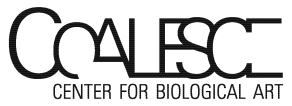
Participant Bios
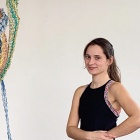
Emma Akmakdjian is an interdisciplinary artist who translates climate data and system processes into interactive installations to dissolve barriers between nature and culture. Her work focuses on mariculture and marine ecologies, taking inspiration from her experience as an AAUS scientific scuba diver. Akmakdjian received her MFA from UCLA in Design | Media Arts and has a certificate in Leaders of Sustainability. She pursued her Bachelor of Arts from California State University Channel Islands and studied at L’Accademia di Belle Arti, Firenze, Italy.

Marisa Manheim’s research investigates how embodied experiences can be mobilized to build consensus and develop creative approaches to solving society’s sustainability challenges. This research lies at the intersection of design, public participation in science and technology, and sustainability transitions management. Marisa has a background in user experience design and spent eight years prior to her Ph.D. as policy and programming director for an urban agriculture nonprofit in Pittsburgh, PA. Her doctoral research, which investigated decision-making about recycled wastewater as a drinking water supply in Arizona, received a National Science Foundation Doctoral Dissertation Improvement Grant, a Babbitt Center Dissertation Fellowship and a WateReuse Arizona Scholarship.

Daniela Brill Estrada is an artist from Bogotá living and working in Vienna. Daniela's creative process is nourished by her interest in complexity sciences, aesthetics and non-hierarchical structures of knowledge, and is based on the idea of indisciplinarity, constructed with the Suratómica Network, of which she is co-organizer. In collaboration with particle physicists, researchers of the origin of life and astrobiologists, daniela's work is focused on de-hierarchizing matter and eliminating binary western taxonomies and categories, particularly that of life-non-life. In her work, daniela uses matter that mutates, changes and interacts to make visible the information processes of different bodies.

Marta is Director of Cultivamos Cultura, a leading institution devoted to experimental art in Portugal and Ectopia, dedicated to facilitating collaborative work between artists and scientists. She has worked at the intersection of art and biology since the late 90s, in the UK, Australia, the Netherlands, and Portugal, exploring the conceptual and aesthetic opportunities offered by biological sciences for visual representation in the arts.

Roberta Buiani is an assistant professor in Media and Cultural Studies and coordinator of NewONE, an interdisciplinary first year experience program at New College, the University of Toronto. She is the co-founder and artistic director of the ArtSci Salon at the Fields Institute for Research in Mathematical Sciences (Toronto) and Scholar in Residence at Sensorium, Centre for Digital Arts and Technology (York University). Her recent research focuses on life forms exceeding the categories defined by traditional methods of classification.

Aidelen Montoya is a multimedia artist, currently pursuing an MFA degree at the University at Buffalo.
More info here.

Crystal Z Campbell (they/them/theirs) is a multidisciplinary artist, experimental filmmaker, and writer of Black, Filipino, and Chinese descents. Campbell finds complexity in public secrets — fragments of information known by many but undertold or unspoken. Their archive-driven work in film/video, performance, installation, sound, painting, and text, has been exhibited at Drawing Center, Nest, ICA-Philadelphia, Studio Museum of Harlem, SculptureCenter, and SFMOMA, amongst others. Honors and awards include the Pollock-Krasner Award, MAP Fund, MacDowell, Skowhegan, Rijksakademie, Whitney ISP, Franklin Furnace, Tulsa Artist Fellowship, and Flaherty Film Seminar. Campbell’s writing has been featured in World Literature Today, Monday Journal, GARAGE, and Hyperallergic. Campbell is a Harvard Radcliffe Film Study Center & David & Roberta Logie Fellow (2020-2021) and founder of the virtual programming platform archiveacts.com. Campbell was recently named a 2021 Guggenheim Fellow in Fine Arts.

CECILIA VILCA OCHARAN is Peruvian transdisciplinary artist, feminist chola techno-witch, and language activist. She has an M.A. in Digital Arts, UPF, BCN, Spain. She is a founding member of the creative and digital heritage division, MyAP Electron Microscopy Laboratory. From a decolonizing vision, she exercises her epistemological rebellion using technology as a tool and object of analysis. Her main goal and poetics are to encourage reflection through revelation. Her projects are born from her personal crusades, and therefore, they are micropolitical flesh. ISEA2020 Montreal and ISEA2023 Paris IPC Member. FEMeeting 2023 Taos and TTT2023 Malta Scientific & Artistic Committee member. Journal of Science and Technology of the Arts (CITAR) Reviewer. Eight Art Residency Programs: Mexico, Bolivia, USA, and Canada. She has exhibited her work, organized exhibitions, and given lectures in Peru, Mexico, Bolivia, Argentina, Spain, Cuba, Chile, Norway, Colombia, Brazil, South Africa, Australia, Greece, Ireland, Portugal, Austria, and the USA. Born, lives and dreams in/from Lima, Peru.

Christina Corfield is an artist and media scholar whose work pushes against the historical amnesia that often accompanies the fetishizing of new technologies. The projects she researches both present and complicate histories of media and technology to create space for critical thought about the technologies we rely on every day, and the systems that make those technologies necessary or attractive. Christina is especially interested in how new technologies are explained and represented in popular culture to make them understandable and desirable to the public through dramatization and iconography. Being critical and aware of this process is important because the stories and images associated with technologies ultimately construct the meaning and perceived value of those technologies for individuals and for society. Her work has shown at media festivals, in galleries, universities, and at international conferences. She has had a solo show at Johansson Projects in Oakland, CA and has been part of group shows at the Bluecoat, Liverpool UK, MOCA North Miami, the Exploratorium in San Francisco and Telematic Gallery also in San Francisco, among others. She has also taken part in several residencies, including at the Kala Institute, Berkeley, CA, and Western New York Book Arts Center in Buffalo. Her writing has been published online and in scholarly journals including articles about her creative practice and research in Media Fields Journal, the Journal of Early Visual Media and book chapters on peep boxes in Provenance and Early Cinema published by University of Indiana Press, and experimental historiography in the soon to be published The Aestheticization of History and the Butterfly Effect, released by Vernon Press.

Stephanie Rothenberg’s interdisciplinary art draws from digital culture, science and economics to explore relationships between human designed systems and biological ecosystems. Moving between real and virtual spaces her work investigates the power dynamics of techno utopias, global economics and outsourced labor. She creates hybrid artworks that take the form of interactive sculptures, dynamic networks, and performances. Adopting the role of cultural anthropologist, the medium of the techno-sphere itself becomes a laboratory for raising critical questions about our interpersonal relationship to technological innovation and its broader socio-political implications. Stephanie has exhibited throughout the U.S. and internationally in venues including Eyebeam Art & Technology (NYC), Sundance Film Festival (Park City), Massachusetts Museum of Contemporary Art/MASS MoCA, House of Electronic Arts/HeK (Switzerland), LABoral (Spain,) Transmediale (Berlin), and ZKM Center for Art & Media (Germany). She is a recipient of numerous awards such as New York Foundation for the Arts and Creative Capital. Residencies include ZK/U Zentrum für Kunst und Urbanistik in Berlin, TOKAS/Tokyo Art and Space, the Lower Manhattan Cultural Council Workspace/LMCC, Eyebeam Art & Technology and the Santa Fe Art Institute. Her work is in the collection of the Whitney Museum of American Art and has been widely reviewed including Artforum, Artnet, The Brooklyn Rail and Hyperallergic. She is Professor and current Chair in the Department of Art at University at Buffalo.
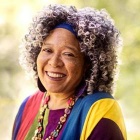
Dr. Claudia J. Ford (DVS scholar) is professor and chair of Environmental Studies at SUNY, Potsdam, Fellow of the Panel on Planetary Thinking at JLU, Germany, a Fulbright Scholar, and Distinguished Visiting Faculty at the University at Buffalo. Her essays have appeared in Art Review Oxford, Journal of Global Ethics, Orion Magazine, and other publications. She is completing a book, Grandmother Epistemology: Ecology, Culture, Spirit; revealing Black environmental wisdom for the purpose of addressing planetary healing. Dr. Ford holds degrees in biology, medicine, business administration, fine arts, and environmental humanities. Dr. Ford has held faculty positions at Antioch University, Goddard College, Rhode Island School of Design, University of Virginia, and the University of the Witwatersrand. Her transdisciplinary scholarship reflects her ongoing commitment to racial, womanist, environmental, food, and class justice and she teaches across the subjects of traditional ecological knowledge, spiritual ecology, entheogenic plant medicine, women’s reproductive health, and sustainable agriculture.
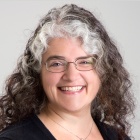
Professor of Biochemistry, Jacobs School of Medicine and Biomedical Sciences
Co-Director of the Genome, Environment and Microbiome Community of Excellence
Executive Committee Member of the Center for Information Integrity
University at Buffalo
Jennifer A. Surtees is an expert on genome stability and genetic diversity. She can speak to the media about a variety of topics tied to genetics, the human genome and DNA replication, repair and recombination.Surtees believes that scientists have a responsibility to communicate clearly with the public as discoveries push the boundaries of knowledge and technology in biology. She feels strongly that an informed public is better able to support science and benefit from it. She has served as co-director of the Genome, Environment and Microbiome Community of Excellence at UB, which advances understanding of the genome and microbiome and their interaction with the environment through research, education, community programs and art. Surtees’ lab focuses on the general problem of maintaining genome stability, which refers to an organism or cell’s ability to accurately transmit genetic material to a new generation. Topics of interest include how genetic mutations threaten that stability and sometimes lead to cancer and neurodegenerative diseases.
During the COVID-19 pandemic, Surtees has worked with UB colleagues and the Erie County Public Health Laboratory to conduct genomic sequencing of virus samples in Western New York. These efforts have aided the region’s COVID-19 response, identifying the arrival of new variants and helping the community understand how SARS-CoV2 infections are changing locally as the virus evolves.
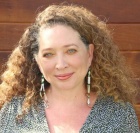
Mishuana Goeman is the daughter of an enrolled Hawk Clan member from Tonawanda Band of Seneca. As a daughter of an ironworker, she traveled throughout the east coast with her father and her family members from job site to job site and made connections with others. In her academic life, she continues to travel and build community. She received her BA at Dartmouth College, MA and PHD from Stanford University’s Modern Thought and Literature program. She has held positions at UCLA as a professor of Gender Studies and American Indian Studies, and she was a Special Advisor to the Chancellor on Native American and Indigenous Affairs. More recently, she moved to the University at Buffalo to help found their Indigenous Studies Department and serve as chair. She has written numerous peer-reviewed articles, contributed to edited collections, and coedited the Keywords for Gender and Sexuality Studies. Her first monograph Mark My Words: Native Women Mapping Our Nations (2013) traces settler colonialism as an enduring form of gendered spatial violence, demonstrating how it persists in the contemporary context of neoliberal globalization through literary texts from the 20th century Native women writers. Her forthcoming book, Settler Aesthetics and the Spectacle of Originary Moments: Terrence Malick’s the New World (2023), examines the continuity of imperialist exceptionalism and settler-colonial aesthetics. In addition, Goeman is a Co-PI on a community based digital project grant, Mapping Indigenous L.A., which is a digital humanities and social science project launched in 2015 that maps the stories of multiple communities in Indigenous LA. She has also helped develop Carrying Our Ancestors Home (2019), which looks to digital media in order to develop better practices in working with tribal communities as well as improve the flow of information back and forth, particularly on repatriation and NAGPRA issues.

Kristina Tome is a Seneca Artist from the Allegany Territory in Salamanca NY. She works with multiple mediums as well as Native Beadwork and Porcupine quills. She has a BFA from the Department of Art at and is working towards an MFA in Critical Museum Sciences. Her artworks can be viewed at venues including the Onöhsagwë:de' Cultural Center, Native American Museum in NYC and Appalachian Museum in WV. She sits on the Board of the Onöhsagwë:de' Cultural Center and the Native Roots Artist Guild. As a Seneca Artist she believes in teaching young people how to create beadwork and uphold the traditions of the Seneca people.
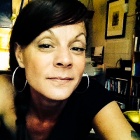
Cosima is storyteller who creates intangible tales that can be brought to form through staged productions. She was the science consultant and a screen writer for the BBC TV series Orphan Black. She is based in Toronto where she writes for TV and film productions.

Tansy Xiao (Coalesce resident)Tansy Xiao is an interdisciplinary artist based in New York. Her nonlinear digital installations explore the immense power and inherent inadequacy of language. Xiao’s work has been shown at Queens Museum, Sound Scene at Hirshhorn Museum, HERE Arts Center, Piksel Festival, NARS Foundation, HASTAC Conference, UKAI Projects, New Adventures in Sound Art among many others. She has received grants and support from NYSCA Electronic Media & Film | Wave Farm, Brooklyn Arts Council, Foundation for Contemporary Arts and Harvestworks Digital Media Arts Center. http://tansyxiao.com

Kathy High is an interdisciplinary artist working with technology, art and biology. She collaborates with scientists and artists, and considers living systems, empathy, animal sentience, and the social, political and ethical dilemmas of biotechnology and surrounding industries. She has received awards including the Guggenheim Foundation, Rockefeller Foundation, and National Endowment for Arts. Her art works have been shown at documenta 13 (Germany), Guggenheim Museum, Museum of Modern Art, Lincoln Center and Exit Art (NYC), UCLA (Los Angeles), Science Gallery, (Dublin), NGBK, (Berlin), Fesitval Transitio_MX (Mexico), MASS MoCA (North Adams), Para-site Gallery (Hong Kong), and Esther Klein Gallery, Science Center (Philadelphia). She has had residencies with SymbioticA (2009-10), Finnish Society of Bioart (2013), Coalesce (2016-17), Djerassi Scientific Delirium Madness (2019), DePaolo Lab/ Center for Microbiome Sciences & Therapeutics, UW, Seattle (ongoing). High is Professor in Arts, and has a lab at the Center for Biotechnology and Interdisciplinary Studies, Rensselaer Polytechnic Institute, Troy. She is project coordinator for the urban environmental center, NATURE Lab, with the community media organization The Sanctuary for Independent Media, and is also on the board of directors. High is also on the GENSPACE board of directors (Brooklyn) and REFRESH advisory board.